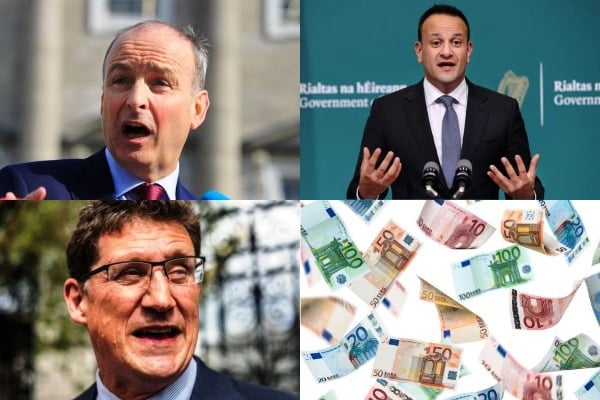
![]()
The Government has announced 50 separate measures as part of its €7bn COVID-19 recovery package. The July Stimulus Plan includes €5bn on spending and €2bn in credit guarantees.
A 2% VAT cut has been announced as part of the plan alongside an extension of the Help-to-Buy scheme. The Pandemic Unemployment Payment has also been extended until April; however, it will be gradually reduced over that time period.
The Temporary Wage Subsidy Scheme is also being extended but is being changed and reduced over time. Meanwhile, people who holiday at home in Ireland will get a rebate on accommodation and food bills. A rebate of up to €125 is available on spending up to €625.
The payment will take the form of a tax credit next year. Taoiseach Michael Martin said it is an extremely wide-ranging package.
“We understand that thousands of businesses are struggling to keep going,” he said.
“We can see the impact on individual workers and their families from the fear that their jobs may never return.
“We also know that we as a nation have to work together to develop the hope and confidence on which we can build a recovery.”
Meanwhile the Tánaiste Leo Varadkar said there would be a 6-month holiday on commercial rates for most businesses. He said the package is bigger than most budgets.
“It is bigger in scale than most budgets and will be deployed at speed with the money being spent drawn down in the coming weeks and months,” he said.
“It is designed to help businesses to open; to help those that are already open to stay open and for those who can’t go back to their old jobs, there are new opportunities in education, training, apprenticeships and enterprise start-up grants for about 75,000 people.”
The surprise item in the package is the across the board reduction of VAT from 23% to 21% from September until February next year.
Meanwhile, the Help-to-Buy extension will allow first time buyers to access up to 10% or €30,000 back on the cost of a new home. That is up from the 5% or €20,000 that is currently available.
There are also grants of up to €25,000 for businesses as well as low interest loans.
Mr Martin said the package include “an unprecedented set of measures required by unprecedented times.”
Here is a summary of the main points so far.